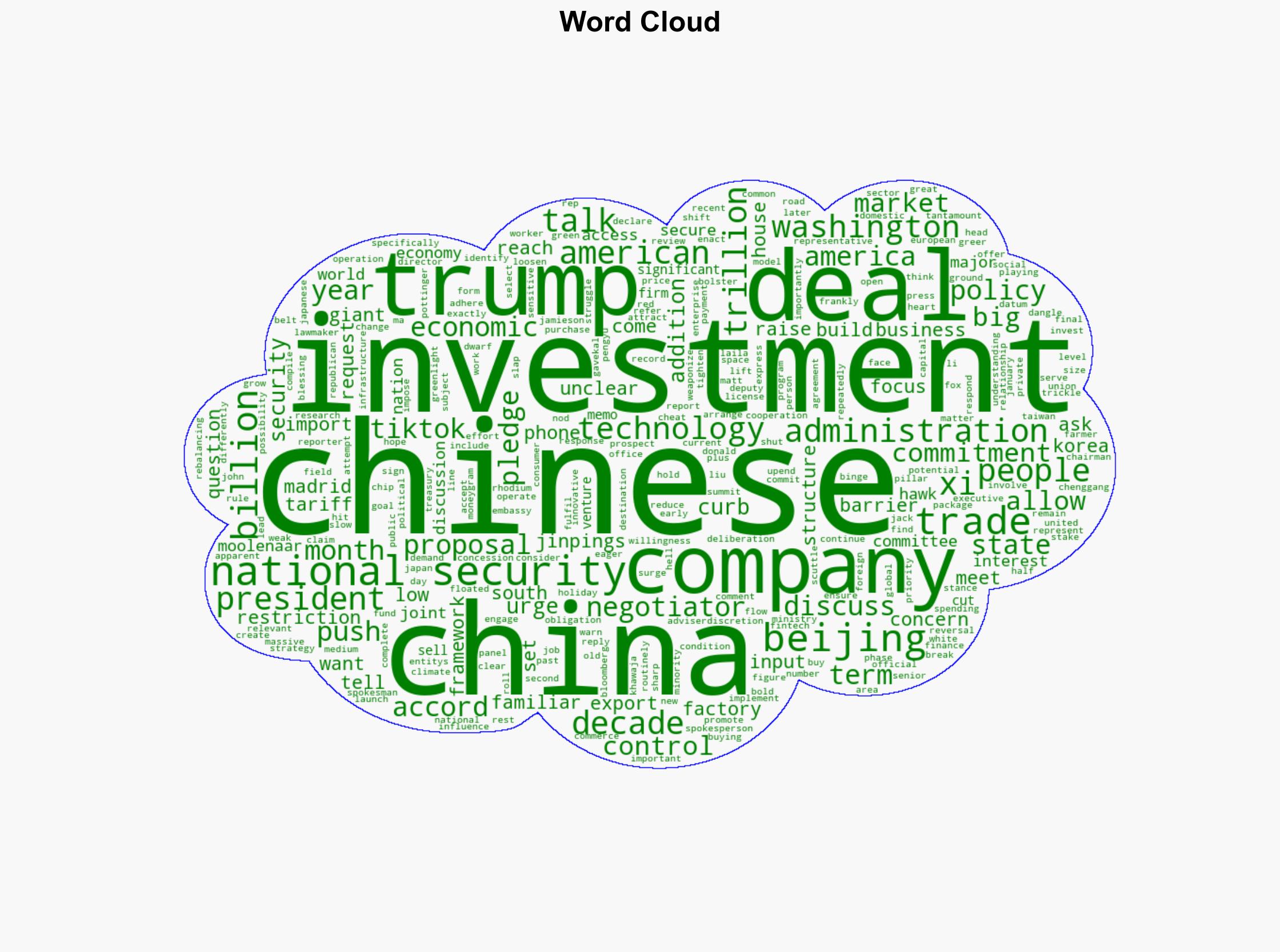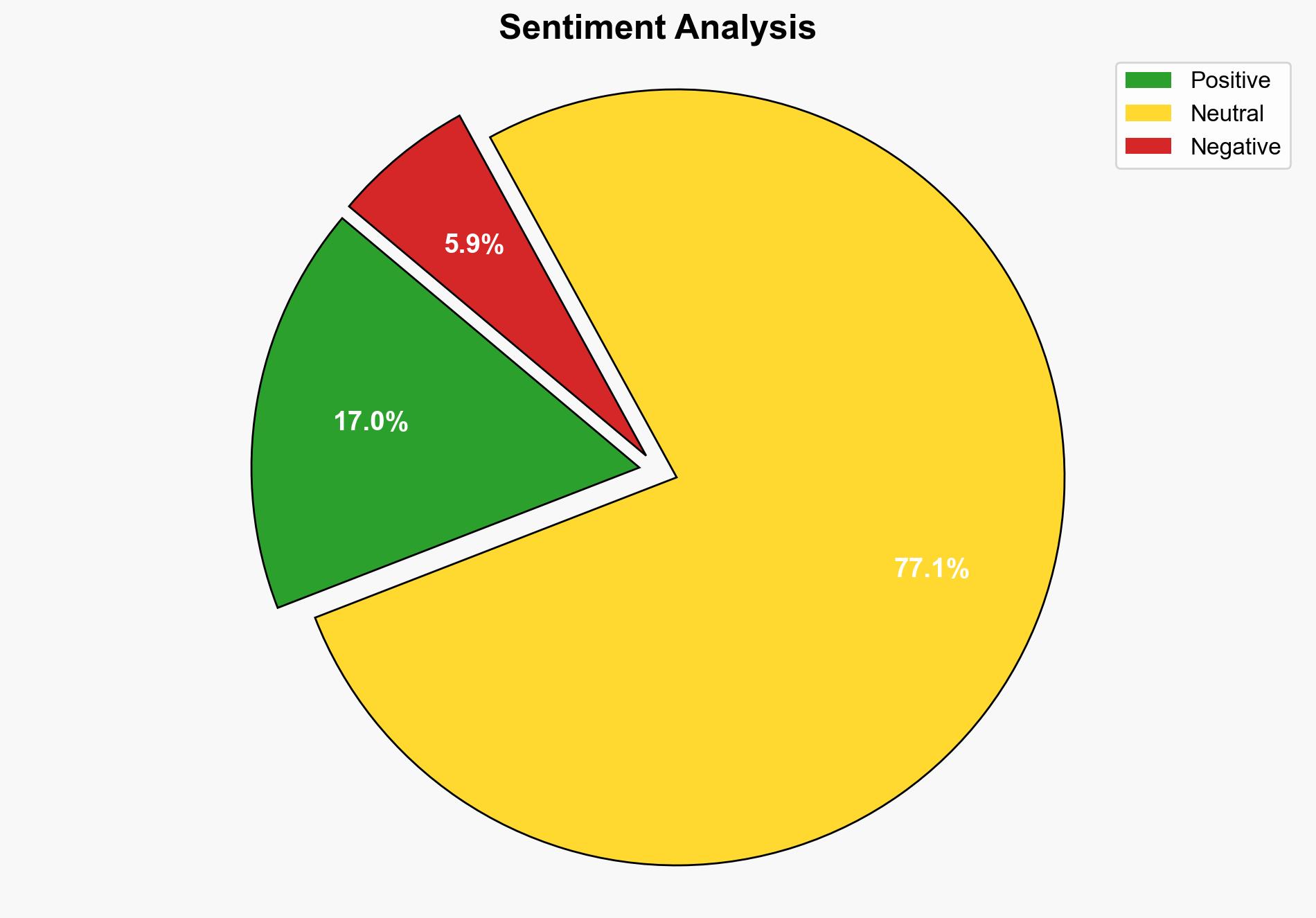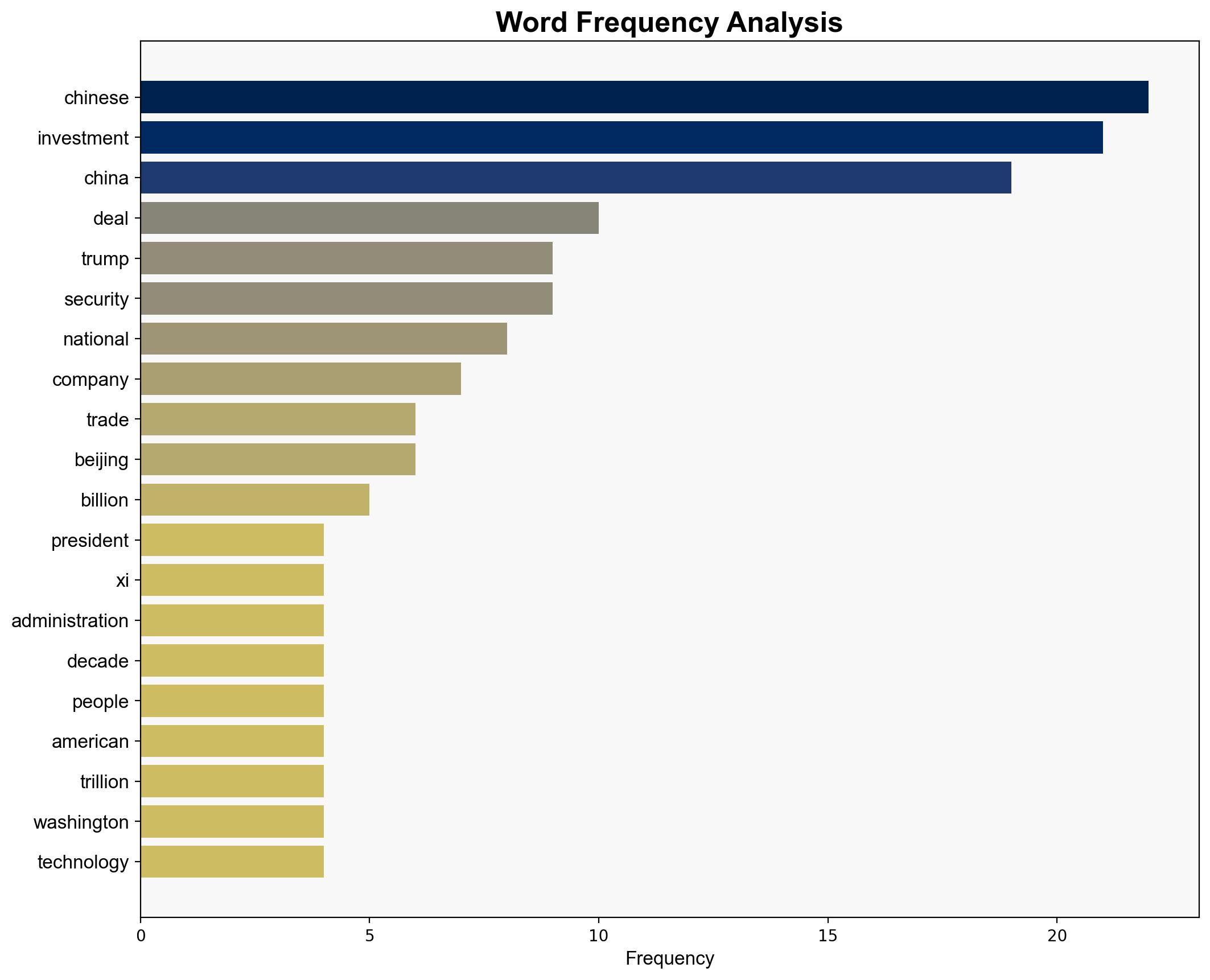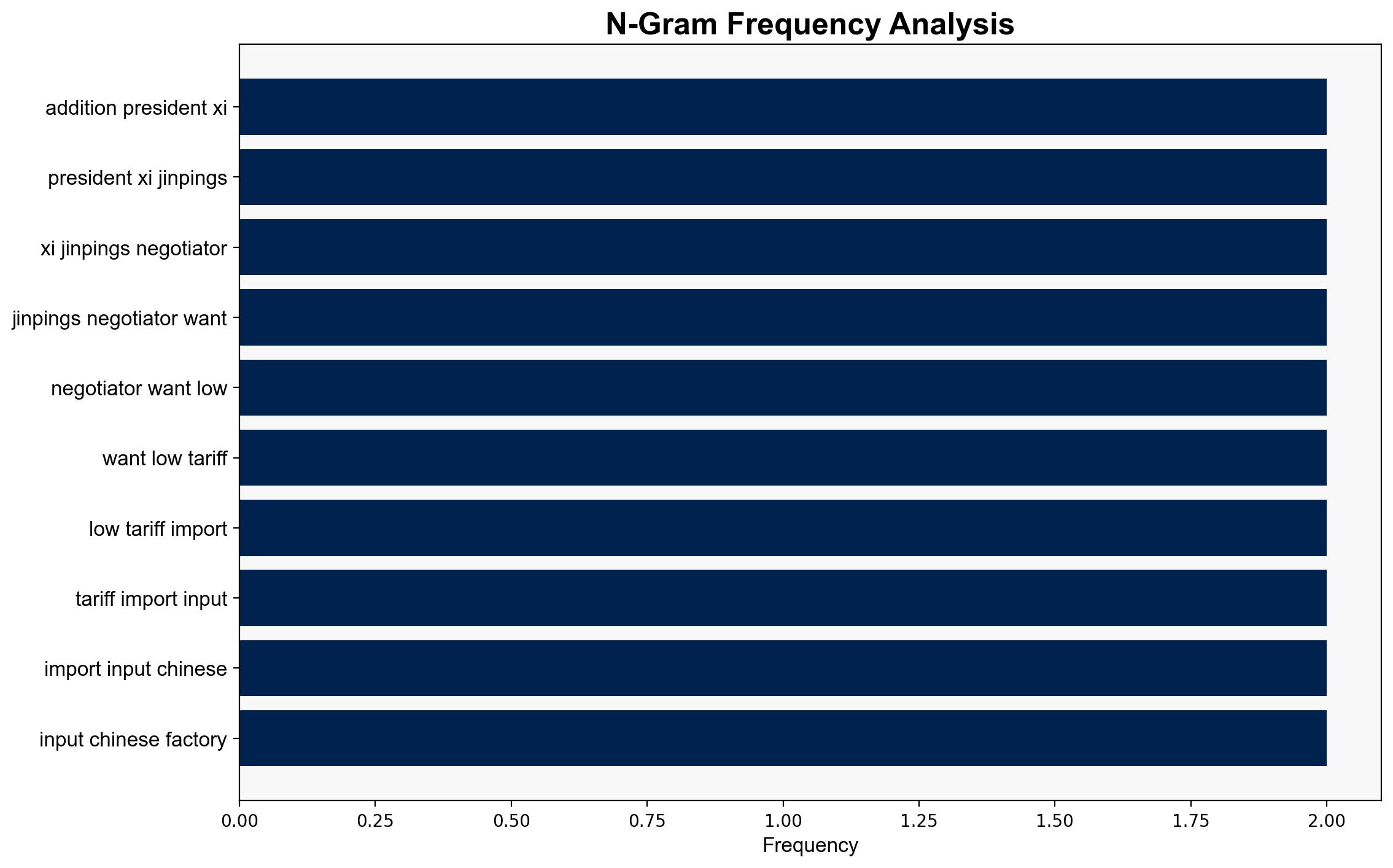China Urges Trump To Lift Security Curbs in Push for Deals – Ndtvprofit.com
Published on: 2025-10-04
Intelligence Report: China Urges Trump To Lift Security Curbs in Push for Deals – Ndtvprofit.com
1. BLUF (Bottom Line Up Front)
China is actively seeking the removal of U.S. security restrictions to facilitate increased trade and investment, potentially offering significant economic incentives. The most supported hypothesis is that China aims to strategically leverage economic incentives to reshape U.S. policy in its favor. Confidence level: Moderate. Recommended action: Maintain a cautious approach, ensuring any agreements include robust safeguards against potential security risks.
2. Competing Hypotheses
Hypothesis 1: China is genuinely interested in fostering economic cooperation and investment in the U.S. to mutually benefit both economies, using the promise of significant investment as leverage to negotiate the lifting of security restrictions.
Hypothesis 2: China is primarily using the prospect of large-scale investment as a strategic tool to weaken U.S. security measures, aiming to gain greater access to sensitive technologies and markets, while not fully committing to the proposed investments.
Using ACH 2.0, Hypothesis 2 is better supported due to historical patterns of China leveraging economic deals for strategic gains and the ambiguity surrounding the specifics of the investment commitments.
3. Key Assumptions and Red Flags
– Assumption: China has the capacity and intent to fulfill its proposed investment commitments.
– Red Flag: Lack of clarity on the structure and enforceability of the proposed investments.
– Cognitive Bias: Potential underestimation of China’s strategic use of economic leverage.
– Deception Indicator: Historical precedent of China not fully adhering to international agreements.
4. Implications and Strategic Risks
– Economic: Potential influx of Chinese investment could stimulate U.S. economic sectors but may also increase dependency on Chinese capital.
– Geopolitical: Shifts in U.S. policy could alter regional power dynamics, affecting alliances and trade relationships.
– Cybersecurity: Increased Chinese presence in U.S. markets could heighten risks of intellectual property theft and cyber espionage.
– Psychological: U.S. domestic perception of foreign influence could lead to political and social tensions.
5. Recommendations and Outlook
- Conduct thorough risk assessments of proposed Chinese investments, focusing on national security implications.
- Engage in multilateral discussions with allies to ensure a coordinated approach to Chinese economic strategies.
- Scenario-based projections:
- Best Case: China fulfills investment promises, leading to mutual economic growth and improved bilateral relations.
- Worst Case: Security curbs are lifted, leading to increased espionage and strategic vulnerabilities.
- Most Likely: Partial lifting of restrictions with stringent safeguards, maintaining a cautious but open economic relationship.
6. Key Individuals and Entities
– Xi Jinping
– Jamieson Greer
– John Moolenaar
– Matt Pottinger
– Liu Pengyu
– TikTok
7. Thematic Tags
national security threats, cybersecurity, economic strategy, U.S.-China relations





